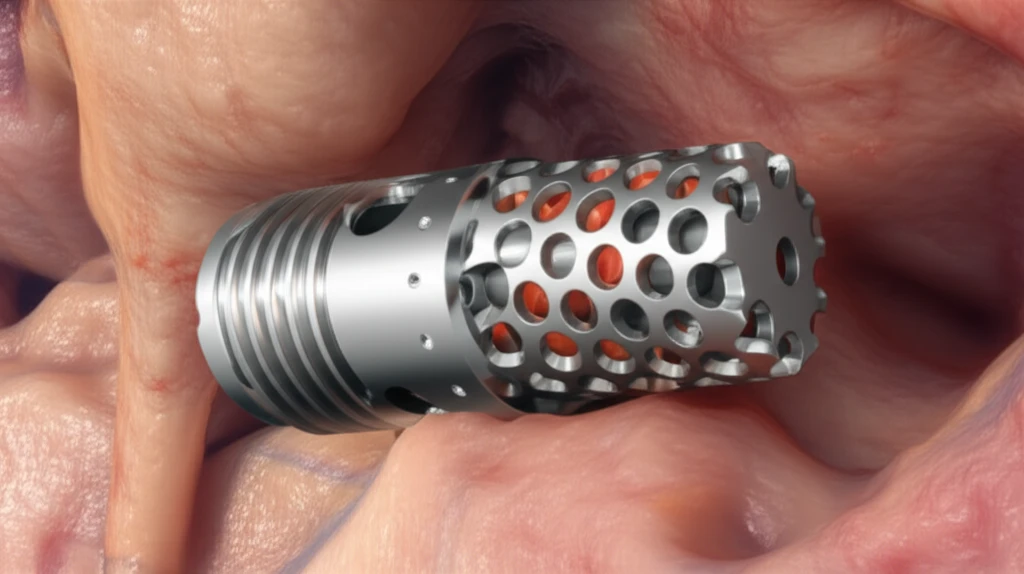
Porous Metals in Orthopedics: Revolutionizing Bone Repair
"Discover how porous titanium alloys are transforming orthopedic implants for better bone integration and long-term stability."
Orthopedic implants have seen remarkable advancements in recent years, with a significant focus on materials that can better integrate with the body's natural tissues. Among these, porous metals, particularly titanium alloys, have emerged as promising candidates due to their unique properties and potential to revolutionize bone repair and arthroplasty.
Traditional metal implants often cause stress shielding, a phenomenon where the implant bears most of the load, reducing stress on the surrounding bone and leading to bone loss. Porous metals aim to mitigate this issue by mimicking the structure and mechanical properties of natural bone, promoting better load distribution and bone integration.
This article delves into the world of porous titanium alloys, examining their fabrication techniques, mechanical and biological properties, and their potential to transform orthopedic treatments. We'll explore how these innovative materials are being used to create implants that not only provide structural support but also encourage natural bone growth and long-term stability.
What Makes Porous Titanium Alloys Ideal for Bone Implants?

Porous titanium alloys offer several key advantages over traditional implant materials, making them ideal for orthopedic applications. One of the primary benefits is their ability to reduce stress shielding. By matching the elastic modulus of the implant material to that of the surrounding bone, porous titanium alloys allow for more natural load transfer, preventing bone loss and promoting healthy bone remodeling.
- Reduced Stress Shielding: Mimics natural bone elasticity, preventing bone loss.
- Enhanced Osseointegration: Porous structure encourages bone cell migration and growth.
- Improved Stability: Stronger bone-implant bond reduces loosening risks.
- Biocompatibility: Titanium alloys are well-tolerated by the body, minimizing adverse reactions.
The Future of Porous Metals in Orthopedics
Porous titanium alloys represent a significant step forward in orthopedic implant technology. Their ability to reduce stress shielding, enhance osseointegration, and promote long-term stability makes them an attractive option for a wide range of applications, from joint replacements to bone fracture repair. As research continues and fabrication techniques advance, we can expect to see even more innovative uses of porous metals in orthopedics, leading to improved patient outcomes and a better quality of life for individuals with bone-related conditions.
